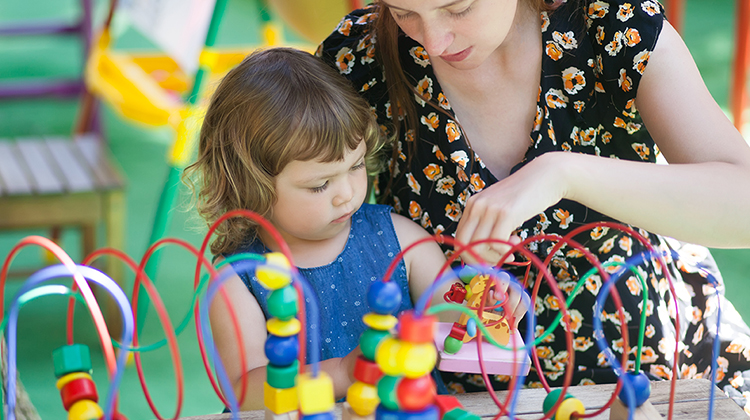Oral language skills predict young children's success in the classroom and life

Communication, curiosity and conversation are key predictors of young children’s success later in life, according to new best practice resources on early childhood education launched in Brisbane this week.
The Early Childhood Education Toolkit (ECE Toolkit), launched by Social Ventures Australia-backed education not-for-profit Evidence for Learning, shows communication and language approaches consistently provide benefits for children between the ages of two and five years old. Oral language acquisition is a predictor of a child’s success in formal classroom settings and life trajectories more broadly.
The ECE Toolkit, an accessible summary of more than 1,700 education research studies, made possible thanks to a partnership with The Bryan Foundation, provides an example of how philanthropy can ensure funding is invested in approaches that work best for Australian children. To support the use of communication and language approaches, Evidence for Learning commissioned the University of Queensland to develop tip sheets for educators. They contain three oral language resources, available for free, which are based on a systemic review of current research and provide evidence-informed strategies to support rich conversations with young learners.
These strategies include creating spaces for children’s talk, suggestions for questions which prompt longer conversations, and tips for keeping these conversations going.
“Our Early Childhood Education Toolkit is all about getting best practice materials and resources in the hands of early childhood educators and centre directors working with young children” Evidence for Learning Director Matthew Deeble says.
“We know high-quality early learning makes a big difference to a child’s readiness for school. It is a key predictor of success later in life, and children experiencing disadvantage stand to benefit the most.”
The launch event brings together a range of early childhood educators and policy makers from around Queensland to discuss how evidence can help great practice become common practice not just in Queensland, but across Australia.
The launch of the ECE Toolkit and the oral language resources come as both Federal and state governments, including Queensland, are rolling out a variety of policies that recognise the importance of investing in evidence-based early childhood education and care.
Research commissioned by The Front Project, an Evidence for Learning partner, shows that investing in early childhood education addresses developmental vulnerability in children, boosts productivity and increases workforce participation.
The Bryan Foundation Executive Chair Jill Simes says the organisation was proud to partner with Evidence for Learning.
“The Evidence for Learning early childhood education initiative has the potential to deliver national positive impacts but also has special features to generate high value for early learning throughout Queensland,” she says.
Newly announced Chair of Evidence for Learning’s Early Childhood Education Expert Reference Council, Prof Karen Thorpe, from The University of Queensland said:
“Evidence for Learning’s work in early childhood education supports educators in their everyday decision-making. By collating and analysing the most current evidence, Evidence for Learning mobilises the best knowledge in early learning research for the benefit of educators, children and our nation’s future.”
About Social Ventures Australia:
Social Ventures Australia (SVA) is a not-for-profit organisation that works with partners to alleviate disadvantage – towards an Australia where all people and communities thrive. SVA influences systems to deliver better social outcomes for people by learning what works in communities, helping organisations be more effective, sharing our perspectives and advocating for change.
About Evidence for Learning
Evidence for Learning is a not-for-profit organisation that shares the best quality evidence on what works in classrooms with teachers and education decision makers across Australia. Evidence for Learning is incubated by Social Ventures Australia (SVA) with the support of the Commonwealth Bank of Australia and the Education Endowment Foundation (UK) as founding partners.